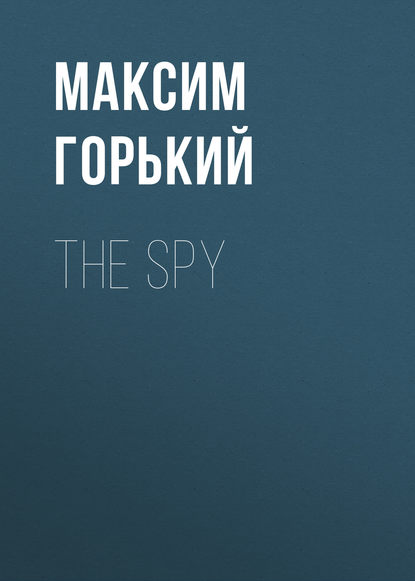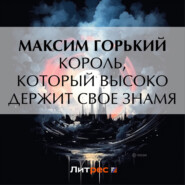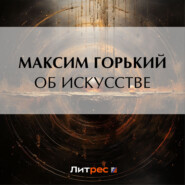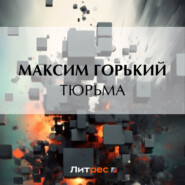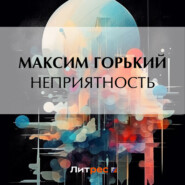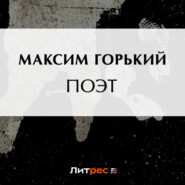По всем вопросам обращайтесь на: info@litportal.ru
(©) 2003-2024.
✖
The Spy
Настройки чтения
Размер шрифта
Высота строк
Поля
"Why did I speak to him?" he thought again on the way. "Instead, I should have told it that time to Olga."
The city awoke, and Yevsey wanted to sleep. He felt uneasiness, discomfort in his breast again. His heart was like a little room from which all the furniture has been removed, and which is left bare and empty, with green stains of dampness on the torn wall-paper, showing the dumb patterns made by the chinks in the plastering.
He wanted to sleep, but it was pleasant to stroll the streets, and he walked homeward with reluctant steps.
CHAPTER XXVI
About midday Yevsey was awakened by Viekov dressed in an overcoat and hat. He looked downcast. He shook the back of the bed, and said in a muffled voice, monotonously:
"Hey, Klimkov, get up. They are summoning everybody to the office. Hey, Klimkov – they have proclaimed the constitution. They are summoning all the agents from their lodgings. Filip Filippovich gave the order. Do you hear, Klimkov?"
His words fell like large drops of rain, full of sadness. His face was drawn, as with the toothache. His eyes blinked frequently, as if he were about to cry.
"What is it?" asked Yevsey jumping from bed.
Viekov pursed his lips dismally.
"Is it possible to understand? They said yesterday the Czar would give a full constitution, and to-day here's the manifesto, he's actually giving it. Our Department has become like an insane asylum – that Sasha is such a coarse creature, astonishing. He keeps shouting, 'Strike, slash,' and so forth. Why, look here, I wouldn't make up my mind to kill a man even for five hundred rubles. Yet he proposes we should kill for forty rubles a month. Why, it's savagery even to listen to such talk." Viekov puffed his cheeks, and sighed in weariness of spirit, as he paced up and down the room. "It's horrible. Dress quickly. We must go."
Pulling on his trousers Klimkov asked musingly:
"Whom do they want us to kill?"
"The revolutionists. Although what revolutionists are there now? According to the Czar's ukase, you'd suppose the revolution was ended. They tell us we should gather the people in the streets, march with flags, and sing, 'God Save the Czar.' Well, why not sing, if liberty has been granted? But then they say that while doing this, we should shout 'Down with the constitution,' and so forth. I can't for the life of me understand. That's going against the manifesto and the will of the Czar Emperor. There are many besides me who don't understand it. I'm not the only one."
His voice sounded protesting, insulted, his legs clapped together. He seemed as soft as if his bones had been removed from his body.
"I'm not going there," said Klimkov.
"What do you mean?"
"Just so. First I'll walk the streets, and see what they're going to do."
Viekov sighed again, and whistled.
"Yes, of course. You're a single man. But when you have a family, that is, a woman who demands this, that, the fifth thing, and the tenth thing, then you'll go where you don't want to, yes, you will. The need for a living compels a man to dance a tightrope. When I see tricks on a tightrope, my head begins to turn, and I feel a pain in the lower part of my chest. But I think to myself, 'If it would be necessary for your livelihood, then you, too, Ivan Petrovich Viekov, would dance a tightrope.' Yes, indeed. A poor man must live by doing things that wring his heart, and whether he wants to or not. Such is the law of nature, as Grokhotov says."
Viekov tossed himself about the room, knocking against the table and the chairs, mumbling and swelling his rosy cheeks. His little face was puffed like a bladder. His insignificant eyes disappeared, and the little red nose hid itself between his cheeks. His sorrowful voice, his dejected figure, his hopeless words annoyed Klimkov, who said unamiably:
"Soon everything will be arranged differently. So there's no use complaining now."
"But in our place they don't want a different arrangement," exclaimed Viekov, gesticulating, and stopping in front of Yevsey. "You understand?"
Yevsey disturbed turned on the chair, desiring to express a thought in his mind, but he was unable to find words, and began to lace his shoes sniffling.
"Sasha shouts, 'Beat them. Show them what liberty is. So that they may,' he says, 'get afraid of it.' Viakhirev displays revolvers. 'I'll shoot,' he says, 'straight into the eyes.' Krasavin is gathering a gang of some sort of people, and also speaks about knives, and hacking people down, and all such things. Chasin is preparing to kill a certain student, because he took his mistress from him. Some other new fellow has come. He's one-eyed, and smiles all over, and his teeth are knocked out in front. A very terrible face. Sheer savagery, all this."
Viekov lowered his voice to a whisper, and said mysteriously,
"Everyone ought to protect his means of a livelihood. That's understood – but preferably without murder. Because if we start to kill, then we in turn will be killed, too."
Viekov shuddered. He turned his head toward the window, and listened to something. Then he raised his hand, and his face turned pale.
"What's the matter?" asked Yevsey.
A resonant noise hit against the windows in soft uneven blows, as if to open them cautiously and pour itself into the room. Yevsey rose to his feet with a look of inquiry and alarm at Viekov; while Viekov standing at some distance from the window stretched his hand out in order to open it, apparently taking care not to be seen from the street. At the same moment a broad stream of sounds broke in, surrounded the spies, pushed against the door, opened it, and floated into the corridor, powerful, exulting, sturdy.
"They are rejoicing," said Viekov quietly, starting.
"Look out and see what it is," said Yevsey, hurriedly throwing an overcoat on.
But Viekov was already looking out, and he began to report what he saw, every minute quickly turning his head from the window to Yevsey. He spoke rapidly and brokenly.
"The people are marching – red flags – a great many people – countless – of various stations – all mixed up in one crowd – an officer even – and Father Uspensky – without hats – Melnikov with a flag – our Melnikov – look!"
Yevsey ran to the casement, looked down, and there saw a thick mass of people filling the entire street. In his eyes gleamed a compact mass of faces, which shone like the stars in the Milky Way. Over the heads of the throng waved flags resembling red birds. Klimkov was deafened by the seething noise. In the first row he saw the tall, bearded figure of Melnikov, who held the short pole of the standard in both hands, and waved it. At times the cloth of the flag enveloped his head like a red turban. From under his hat escaped dark strands of hair, which fell on his forehead and cheeks, and mingled with his beard. He was shaggy as a beast. Evidently he was shouting, for his mouth stood wide open.
"Where are they going?" mumbled Klimkov, turning to his comrade.
"They are rejoicing," Viekov repeated, and looked out into the street, leaning his forehead against the glass.
Both men were silent, attentively watching the motley stream of people. With acute hearing they caught the loud splashings of different exclamations in the deep sea of the din.
Viekov shook his head.
"What a power, eh? The people lived each by himself and now suddenly they all move together – what a phenomenon!"
"They've grown wise, it means. They are becoming masters of life," said Yevsey with a smile. At that moment he actually believed so.
"And our Melnikov, did you see him?"
"He always stood up for the people," Yevsey explained didactically. He left the window, feeling himself near his aim, bold and new.
"Now everything will go well. No one wants another to order him about. Everyone wants to live according to his needs, quietly, peacefully, with things arranged in a good system," he said gravely, examining his sharp face in the mirror. He liked his face to-day. It was calm, almost cheerful. Wishing to strengthen the new and pleasant feeling of satisfaction with himself, he reflected on how he might raise himself in the eyes of his comrade. So he announced with an air of mystery, "Do you know, Maklakov has escaped to America?"
"So?" the spy rejoined indifferently. "What of it? He's a single man."
"Why did I tell him?" Yevsey reproached himself. A feeling of slight alarm and enmity came over him.
"Don't speak of this to anybody, please," he begged Viekov.
"About Maklakov? Very well – I have to go to the office. Aren't you going?"
"No, but we can go out together."
On the street Viekov remarked in dismal irritation, speaking in a subdued voice:
"Stupid people, after all. They ought not to be going about with flags and songs. Now they have once begun to feel themselves in power they ought to ask the authorities straightway to abolish all sorts of politics, to transform everybody into people, both us and the revolutionists, to distribute awards to whom they are due, both on our side and theirs, and to make a strict announcement, 'All politics strictly prohibited.' We've had enough of hide and seek!"





